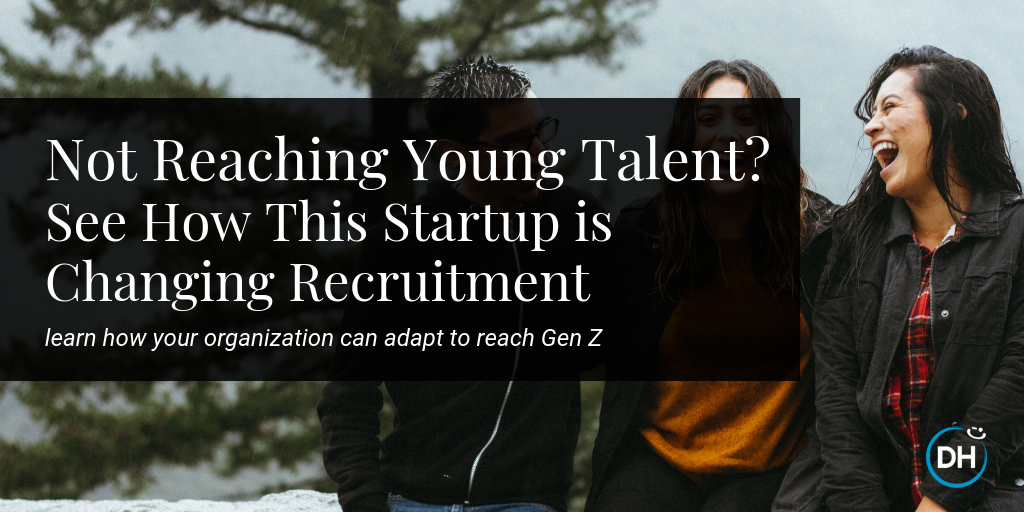
When I first joined the workforce as a 21-year old Asian female engineer, attracting and retaining top young talent (the Millennials) was all the hype because the Baby Boomers were retiring!
It was such a priority that my company at the time had a young employee support network. I was also part of the campus recruiting team. Fifteen years later, companies are still trying to figure out how to attract and retain top young talent. Instead of Millennials, we’re looking right at Generation Z.
I recently interviewed Philip Xiao, the founder of an up-and-coming startup, HOMI, to learn about how his company is disrupting the traditional campus recruiting process. As 10,000 Baby Boomers retire every day, it’s becoming more competitive than ever to get Gen Z on your teams.
So what does it take to attract and retain Gen Z talent?
We’ve all gone through those multi-month long interview and hiring processes. That does not have to be the norm. Here’s a successful case study for a client of HOMI whose company size has grown from 500 to 1000 in a matter of months. The Sales department needed entry-level sales employees. They decided to use HOMI because many of the target audience would not have the credentials to be on LinkedIn yet.
On Monday, the jobs were posted. On Tuesday, the client asked their employees to share their stories on HOMI. On Wednesday candidates were contacted, and on Friday, eight applications were submitted! The client ended up hiring candidates from Carleton College, a school that was previously difficult for them to reach.
Phil sees HOMI as the career center of the future, accessed right from your phone. It connects students with alumni from their school, allowing alumni to help determine which jobs and employers might be the best fit for candidates in the student pool.

The platform is also a recruiting hub. Alumni can connect directly with students and choose to give talks to campuses through video share. Currently, recruiters may skip small liberal arts colleges often due to the size of the college and difficulty of travel, so HOMI provides opportunities for companies to connect with these colleges.
What gave Phil the idea to start HOMI was the difficulty he faced with his job search upon graduation. He wanted to become an investment banker but realized that it was really hard to do, especially when you are not from one of the Ivy Leagues or top public universities. Fortunately, a Carleton alumni, who later became his mentor, passed Phil’s resume onto Morgan Stanley’s Hong Kong office to get his feet in the door. That experience inspired Phil to create a platform that builds more of these connections for others. HOMI has created a culture where current students and new grads can connect with alumni in a way that is not awkward, targeted towards a goal [hiring/recruiting], and can help build genuine relationships.
Are your best, new talent leaving faster than you can hire? Watch this video from coach|sultant Jess Lozada on how you can attract the right candidates!
HOMI conducted a lot of focus groups, surveys, and in-person conversations, and what seems to matter most in attracting and retaining young talent is doing something with an intentional purpose. Gen Z wants to be doing something that is not only making a difference in their work but also in society. Secondly, Gen Z also wants opportunities to grow and learn to be available for those want them, not just for employees who fit specific rigid criteria. With these points in mind, purpose or cause-driven startups really don’t have trouble attracting Gen Z, while a Fortune 500 company with great benefits would have a hard time wooing this group.
HOMI is planning on moving away from traditional job postings and will be asking alumni to answer these four questions about their employers’ open positions:
If the candidate likes what they see in the answers, the candidate can apply directly to the company’s job site.
Phil believes that this is where the world is going, and companies are going to have to adapt to building a more purposeful culture. He envisions a world where instead of dreading about going to a job that they hate, people are working on something they care about. Of the value of this recruiting trend, he says:
There is tremendous value of having a workforce that wants to be there. That’s going to have profound impacts on productivity, retention, business outputs and frankly, it’s just going to make for better and happier society. That’s a dream world that I would love to see.
Want to create a culture that can adapt to changes and recruits the best talent? Watch this webinar from our CEO Jenn Lim!

Kelly is the happy growth activator at DH. With her 15+ years of lessons learned in engineering, sustainability, investing, business, education and non-profit, Kelly works with business leaders, especially startup founders, to level up their personal and team performance. She's also a venture investor passionate about creating a better future of work and a sustainable world.